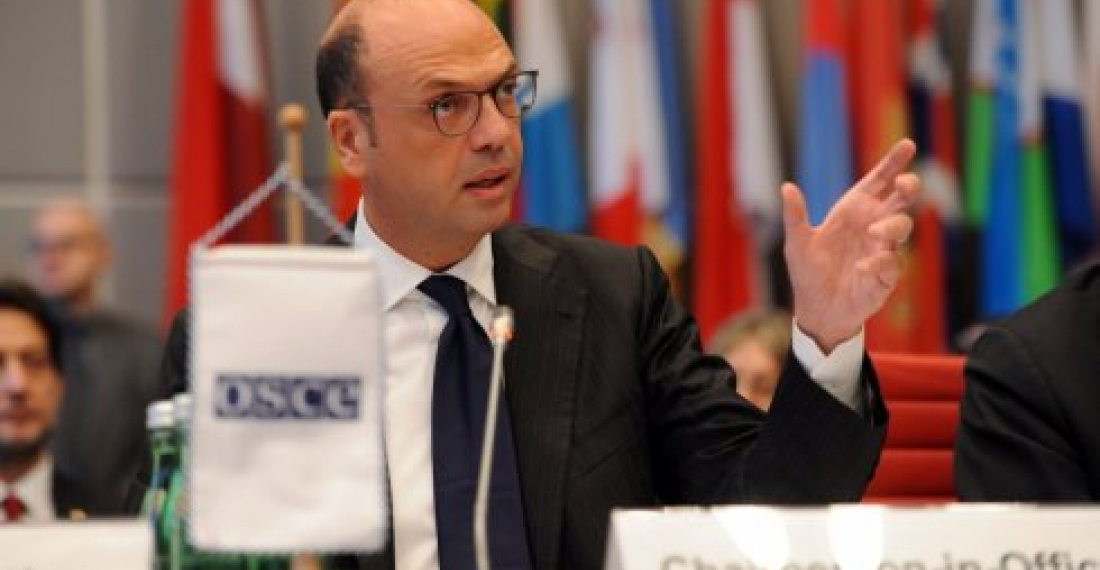The incoming Italian Chairmanship of the OSCE is committed to remain engaged in support of the resolution of the protracted conflicts in the South Caucasus. The Italian Chairmanship will also give greater importance to the multiple challenges coming from the Mediterranean region, the new OSCE Chairperson-in-Office and Italy's Foreign Minister Angelino Alfano told the Permanent Council in Vienna on Thursday (11 January).
Addressing the protracted conflicts, the security of the Mediterranean region, and the challenges of migration, including by combating human trafficking and all forms of xenophobia and discrimination, are among Italy's OSCE Chairmanship priorities, the Italian Foreign Minister stated.
Formally inaugurating Italy's 2018 Chairmanship of the OSCE, Alfano announced that "Dialogue, Ownership, Responsibility" would be the motto of its work this year, reflecting the spirit that informed the organization's origination four decades ago.
"These are the ingredients that we consider fundamental to reviving ‘the spirit of Helsinki' in its most authentic form. It is this spirit that the Italian prime minister at the time, Aldo Moro, called ‘a point of transition to the future'", he said.
He said the protracted conflicts would be a major focus of the Italian Chairmanship's work this year.
You can watch the address of the OSCE Chairperson-in-Office and Italy's Foreign Minister Angelino Alfano to the OSCE Permanent Council in Vienna here
source: commonspace.eu with OSCE
photo: Italian Foreign Minister and new Chairperson in Office of the OSCE addressing the organisation's Permanent Council in Vienna on 11 January 2018 (picture courtesy of the OSCE







